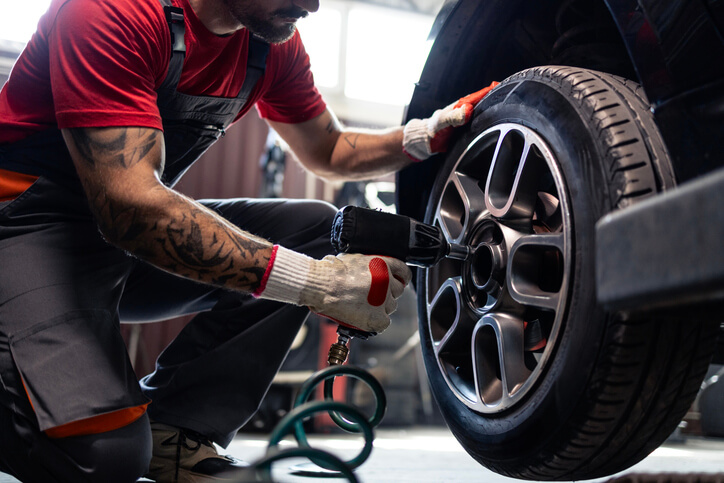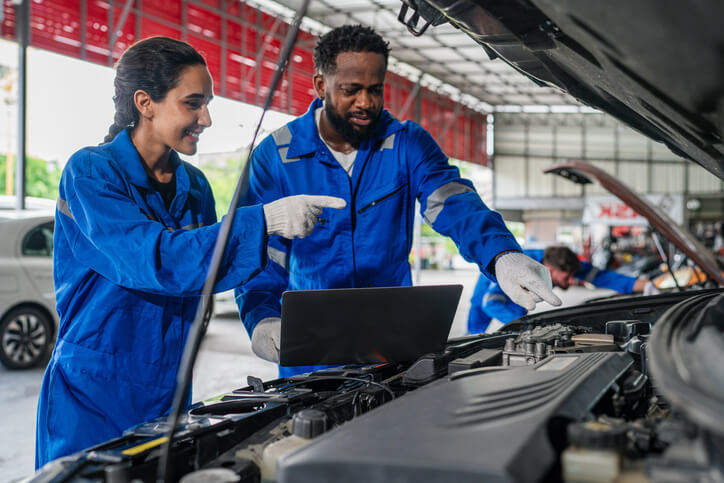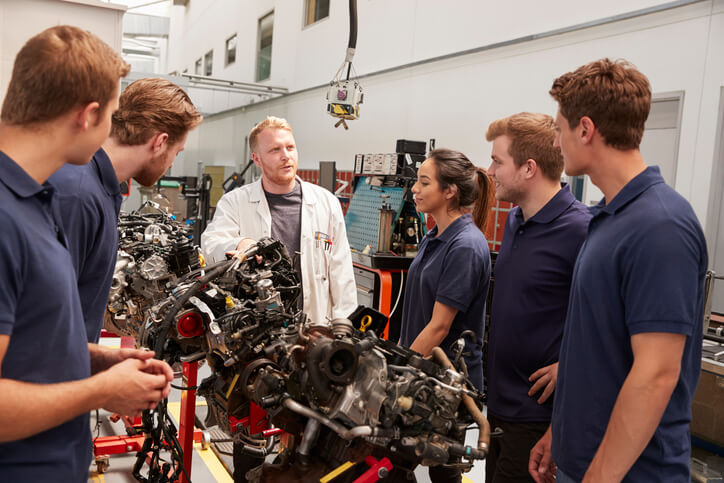From Classroom to Garage: Real-World Skills You’ll Gain in Auto Mechanic Training
Curious about what it’s like to go from a classroom to a real garage?
In auto mechanic training, you won’t just memorize facts from a textbook – you’ll apply them to actual vehicles. Learning happens right in the shop. This means you start gaining real-world experience from day one, bridging the gap between theory and practice. By the time you graduate, you’ll have a toolkit of hands-on skills and the confidence to step into a professional garage.
Below, we break down some of the key real-world skills you’ll develop during your training.
Diagnosing Car Problems with Confidence
One of the first things you’ll master is how to diagnose issues in a vehicle. In the classroom, you’ll learn about engine systems, electrical circuits, and how various car components work.
Then, you’ll head into the garage to put that knowledge to use. Using modern diagnostic tools and old-fashioned know-how, you’ll practice identifying what’s wrong when a car isn’t running right.
- Reading Diagnostic Codes
- Visual and Physical Inspections
- Troubleshooting Techniques
By diagnosing problems during your automotive training, you build the confidence to tackle challenges head-on. Real-world diagnostics is like detective work, combining high-tech tools with your own senses and critical thinking.
Performing Maintenance and Repairs Hands-On
Another major part of your training is routine maintenance and basic repairs. It’s not all theory – you’ll actually roll up your sleeves and get a bit greasy! Under the guidance of your instructors, you’ll perform the same kinds of tasks professional mechanics do every day.
- Oil Changes and Fluid Checks
- Tire and Brake Service
- Parts Replacement

Mastering Tools and Technology in the Garage
A mechanic’s toolbox today is more than just wrenches and screwdrivers. Modern garages use advanced equipment and technology alongside traditional tools. During your program, you’ll become familiar with all of it.
- Shop Equipment
- Diagnostic Methods
- Specialty Tools
By mastering both the high-tech gadgets and the classic hand tools, you’ll be ready to work on anything from an old sedan to the latest electric vehicle when you become a mechanic. Employers value graduates who are comfortable with technology as well as with greasy wrenches.
Safety and Shop Best Practices
Working in an auto shop can be risky if you don’t know what you’re doing. That’s why safety is emphasized from day one of training. In class, you’ll cover safety rules, and then you’ll practice them every time you’re in the garage.
- Proper Tool Use & Lifting:
- Protective Gear
- Shop Organization
These habits might seem simple, but they’re exactly what employers look for. By treating your school’s garage like a professional shop, you’ll transition into a real workplace much more easily.
Problem-Solving and Teamwork
Auto shops are collaborative places, and cars can throw curveballs that require problem-solving and teamwork. Luckily, your training program also helps build these soft skills.
When a repair isn’t straightforward, you’ll learn not to give up. Instructors will guide you through a logical problem-solving process, which involves asking questions, testing different possibilities, and learning from any mistakes. This persistence and teamwork in school prepare you for the real world, where mechanics often collaborate to fix complex problems.

From Auto Mechanic Training to a Career: Ready to Hit the Garage?
The ultimate goal of training in great auto mechanic schools is to prepare you for a successful career. Everything you do, from diagnosing engines to tightening bolts, simulates what happens in a real automotive shop. By the end of your program, you won’t just have textbook knowledge; you’ll have practical experience that makes you job-ready.
Many programs offer co-op placements or internships, so you can apply your skills in a real garage with actual customers. With this combination of classroom learning and hands-on garage training, you’ll graduate feeling confident and excited to start your journey as a professional mechanic.
Are you ready to turn your passion for cars into a career?
Learn more about our auto mechanic training and see how you can start building your future in the automotive industry today!

